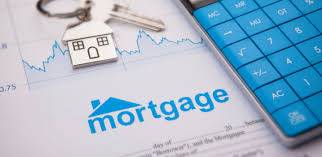Notes on
Sustainable and Green Mortgages in Ghana
The concept of sustainable and green
mortgages is emerging globally as a way to align housing finance with
environmental goals. In Ghana, where urbanization and housing needs are on the
rise, the adoption of green mortgages can play a significant role in fostering
sustainable development while addressing the country’s energy and environmental
challenges.
1.
Definition and Purpose of Green Mortgages
- Definition: Green mortgages are specialized
loan products that provide favorable terms to borrowers who purchase,
build, or renovate homes with environmentally sustainable features.
- Purpose:
- Promote energy efficiency in homes.
- Encourage the use of renewable energy technologies.
- Reduce the environmental footprint of housing
developments.
- Align with global and national sustainability goals,
such as Ghana’s National Energy Policy and commitments under the Paris
Agreement.
2.
Features of Green Mortgages
- Incentives for Borrowers:
- Lower interest rates for eco-friendly home purchases
or renovations.
- Longer repayment periods to encourage investments in
sustainable housing.
- Requirements:
- Homes must meet specific energy-efficiency criteria,
such as solar panel installation, energy-efficient windows, or
water-saving systems.
- Certifications from relevant bodies, such as the
Ghana Green Building Council, may be required.
- Use Cases:
- Retrofitting existing homes with energy-efficient appliances.
- Financing the construction of new eco-friendly homes.
3.
Relevance of Green Mortgages in Ghana
- Energy Challenges:
- Ghana faces frequent energy shortages and high
electricity costs. Green mortgages can support energy-efficient housing
to reduce dependence on non-renewable sources.
- Urbanization:
- Rapid urban growth in cities like Accra and Kumasi
increases the demand for housing, putting pressure on resources.
Sustainable housing development can help mitigate these challenges.
- Climate Change:
- Rising temperatures and unpredictable weather
patterns necessitate housing designs that are both resilient and
environmentally friendly.
4.
Benefits of Green Mortgages
- Economic Benefits:
- Reduced utility bills due to energy-efficient
designs.
- Potential government subsidies or tax incentives for
eco-friendly investments.
- Environmental Benefits:
- Lower greenhouse gas emissions.
- Conservation of natural resources through sustainable
building materials and practices.
- Social Benefits:
- Improved quality of life through healthier living
environments.
- Promotion of environmental awareness among
homeowners.
5.
Challenges in Implementing Green Mortgages in Ghana
- Lack of Awareness:
- Limited knowledge among potential borrowers about the
benefits of green mortgages and sustainable housing.
- High initial costs:
- Eco-friendly building materials and technologies often
come with higher upfront costs, deterring many potential borrowers.
- Limited Incentives:
- Absence of widespread financial incentives from banks
or the government to promote green housing.
- Regulatory Gaps:
- No comprehensive framework governing green mortgages
or green building certifications in Ghana.
6. Key
Stakeholders in Green Mortgages
- Financial Institutions:
- Banks and mortgage providers play a crucial role in
offering tailored products and educating borrowers about sustainable
options.
- Government:
- Policies and subsidies can drive adoption. For
instance, incentives for renewable energy installations can align with
green mortgage objectives.
- Real Estate Developers:
- Collaboration with developers to incorporate
sustainability into new housing projects is critical.
- NGOs and International Organizations:
- Entities like the World Bank and UNDP are potential
partners in promoting sustainable housing in Ghana.
7.
Opportunities for Growth
- Integration with National Energy Programs:
- Aligning green mortgage offerings with initiatives
like the Renewable Energy Master Plan can encourage uptake.
- Expansion of Solar Energy Systems:
- With abundant sunlight, Ghana has significant
potential for solar-powered homes, supported by green mortgages.
- Public-Private Partnerships:
- Collaborative efforts between the government, banks,
and private developers can foster innovation and scale.
8.
Conclusion
Green mortgages present a transformative
opportunity for Ghana’s housing and financial sectors. By incentivizing
eco-friendly homes, they address pressing environmental and energy challenges
while contributing to sustainable development. For widespread adoption,
stakeholders must overcome barriers such as high costs and low awareness,
supported by robust policies and financial innovation. As Ghana continues to
urbanize, integrating green principles into its housing market will be
essential for building a sustainable future.


